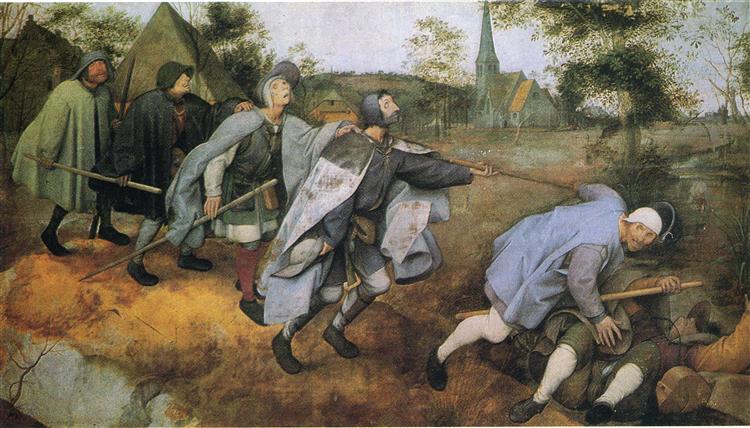A journalist who signed the Cursor code in Presence on Thursday, October 23, 1924, on page 642, questioned whether politics had any logic. If so, then the logic is unique. As we shall see, her peculiarity was not the prerogative of Cursor’s time. She is still quirky in his spirit.
Politics manifests itself in three ways: spoken word, written word, and deed. Politicians talk to us the most. We get what is written to a great extent, but “only in the floods”. The written tsunami is rolling at a time when politics is trying to convince us that we should sympathize with it and not with competition policy. They roll from posters, from newspapers … Today we would also add floods on social networks.
Politics is on the scorpion with the third way. He is ostentatiously showing that he certainly deserves our attention, and doing so, but Cursor has found that “if he overlooks political epochs, even long ones, he sees that several years of writing and speaking are one day of real action.” Does politics really miss men and women? Definitely not overflowing with them. He has no handouts. On the contrary.
Cursor adds one more reason: A political act concludes a certain political endeavor. It turns them into an irreversible reality, and politics takes the ground. It forces her to open up new and new topics and promise more and more deeds. This leads to new unpleasant political risks.
An essential feature of the policy is to show “absolute requirements”. He knows they are impossible, but he insists. “For the external effect,” the author writes, continues that “one of them (politics) must … be able to discount at the right time, albeit as little as possible, and yet enough to compromise.” And here he gives us an insight into the heart of the matter: The compromise “was (in fact) calculated from the beginning, despite apparent absoluteness, as the maximum success.”
Although politics is overflowing with compromises, in spite of this “political practice of compromise”, it is impossible without a “non-negotiable theory, which also has the price of agitation.” It is in the nature of politics, no matter how beaten it, it never loses. In Jaroslav Hašek’s treatise Political and Social History of the Party of Moderate Progress within the Limits of the Law, I will never forget to list the section called The Party is Growing, but it is beaten. Hasek writes, “those who are in the minority proclaim to the world that there is a moral victory on their side” and that “anyone who breaks the leg of the opponent will have a moral victory.” Hasek, tightening from politics, so precisely figured out its political nature.
Politics simply refuses to be unsuccessful. Even the biggest debacle must be able to present and presents as a success. The voter should not know that “full enforcement of a program that guarantees him paradise on earth is impossible,” but that does not prevent politicians from continuing to pretend that “perhaps not only hope, but (there it is) even complete certainty that the program will be fully implemented “. Politics thus cynically “cultivates illusions in which fulfillment is not believed,” and does so with a clear conscience, relying on them “not believing them … not even those who do be seduced by them.” It seems impossible, but it really is. A man tugged at politics can fool him powerfully that he is able to believe in what he does not believe in.
The author recalls that the meaning of political parties is often completely different from what we would expect and that the parties try to tell us. He claims that “their purpose is not … to carry out a certain program, but a constant struggle for something that is impracticable in practice.” It is not just a matter of repeatedly wiping the voter’s eyesight and persuading him that the promise his party has made would certainly be fulfilled if political competition did not throw sticks at it, but also the fact that the purpose of political parties is to fight and ” to fight for something means preparatory, temporary work. ” It is in such work that the parties find their raison d’être. Not showing results are too final, but a sustained effort to achieve those results without eventually achieving them.
As can be seen in our present, not only in Cursor’s time, voters can really lead by the nose and wipe his eyes indefinitely. He must not just be left alone. He must constantly receive “political entertainment” in the form of something that is not only happening, but constantly struggling. “There is (then) a contradiction between theory and praksa, whose veiling on the one hand and trivialization on the other is one of the ugliest moments in political life,” which is accompanied by an example of “voters .
I have no idea how to talk “about the blind about colors”. Fortunately for me, a classic anecdote about two friends knows that. He is sitting in a cafe, one is sighted and the other is blind. The blind man asks if he wants milk in the coffee the waiter has just brought. The blind man asks, what is milk? The seer explains that milk is such a white liquid. What is white, asks the blind. White, patiently clarifies the sighted, needs a swan. What is a swan? A swan is a bird with a long curved neck, explains the sighted. He indicates the shape of a swan’s neck with his hand and lets the blind man feel it. The blind man touches the sighted hand thoroughly and concludes with satisfaction that he already knows what white is and what milk is.
Such was Cursor’s policy at the time. This is how it is today in my time. The blind man finally knows what white is and what milk is.
published: 7. 2. 2022







